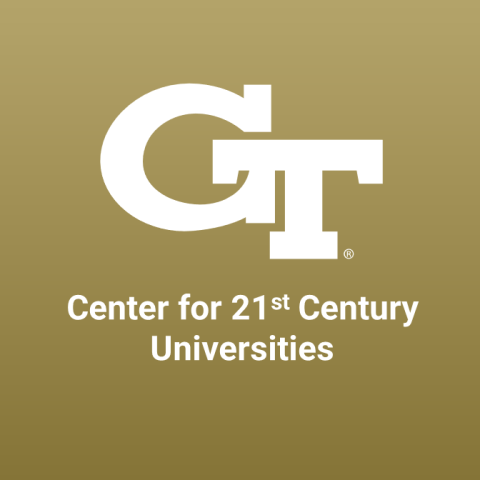
Questions for thinking about your career vitality
Vitality is at the opposite end of the motivation spectrum from burnout. Where do you sit? Here are 10 questions that university faculty can use to reflect on their experience
As a and higher ed coach, I spend a lot of time thinking and talking about the spectrum of faculty experiences, most recently focusing on my own burnout and that of many female faculty members I interviewed for my book . In the book, I explore how the academic culture of productivity, prestige and overwork contributes to an unhealthy workplace environment and to faculty experiences of overwhelm, disillusionment and ultimately, for some, burnout.
Burnout has become a popular topic (unfortunately) in higher ed circles, especially in the face of pandemic-era phenomena such as , and , and it’s certainly something we need to reckon with as a culture.
- Collection: Looking after well-being in higher education
- Using the ‘pick three’ method to avoid burnout in higher education
- Recognise work-life imbalance and restore resilience
But before I experienced and studied burnout, I was more interested in faculty vitality – still am, really. What makes a faculty member vital, energised and passionate over the course of a possibly long career? In my first book, , I explored academic productivity through this lens; faculty life can be complex, overwhelming, empowering and dynamic, often all at once, so how do we create habits and practices that help us remain vital while fulfilling the many concurrent responsibilities of the work?
This question still resonates with me. I want the faculty I work with to know and follow their purpose, connect deeply with their work and those they work with, be productive in whatever ways are most meaningful for them, and also experience a healthy balance that leads to work-life satisfaction. Idealistic, but true.
<������>What is faculty vitality and how do we assess it?So what are we talking about when we talk about faculty vitality? And how do we assess vitality?
We can think of vitality as one end of a continuum, with burnout on the opposite pole. Whereas burnout is characterised by exhaustion, cynicism and reduced professional efficacy, vitality is an experience of deep engagement, curiosity and evolution.
There is a rich literature on faculty vitality, but a definition is hard to pin down. In the late 1980s and 1990s, described vital faculty as those who maintain engagement and passion over the course of a long career; have clearly articulated and concrete short-term and long-term goals that guide work in all aspects of their careers; and take more risks and actively look for professional growth opportunities. Around the same time, claimed that a vital faculty member is one who is “unremittingly curious, who feels a sincere commitment to both individual and institutional goals, who derives satisfaction from professional endeavors, who manifests behaviors that reflect enthusiasm for intellectual activity, and who looks forward to what the future may bring”. And have argued that vitality comes from a strong connection among satisfaction, productivity and engagement that enables faculty members to realise personal and institutional goals.
In 2019, defined vitality as “an affective state that is characterized by high levels of motivation, energy, curiosity, creativity, optimism, and grit. This affective state propels individuals to seek challenges, take risks, collaborate with others, and pursue opportunities for self-improvement.”
I like the DeFelippo and Dee definition because it gives us six traits and four activities we can use as a sort of heuristic for individual levels of vitality. If we are imagining that burnout-to-vitality continuum, we will likely spend most of our careers in the middle, trying to balance the work we have to do with the work we want to do. DeFelippo and Dee’s heuristic offers us a way to check in with ourselves, take stock of where we are on the spectrum, and think through ways to move up the path towards greater vitality, even recognising that there will be times, perhaps long times, when we must commit to roles or activities that don’t always bring us the greatest professional joy.
<������>Questions to ask yourself to assess professional vitalityIn that spirit, consider these 10 sets of questions when it’s time to reflect on your own professional vitality:
Motivation
What motivates you to do your work as a faculty member? What aspects of your work are intrinsically motivating, and how so? How can you use those aspects to set equally motivating goals for the short and the long term?
Energy
What about your work gives you energy? What about it drains your energy? In what ways can you manage your energy in a day, week or semester to improve the level of focus you desire? How can you focus your energy to make any needed change in your career, big or small?
Curiosity
What were you curious about when you started your academic career? What questions motivate you now? How have the questions you care about changed during your career? And what can you learn from that? In what ways can you be curious about the aspects of your job that perhaps aren’t the most engaging or motivating?
Creativity
What new ideas or areas are appealing to you in any aspect of your role, research, teaching or service/administration? What inspires you to pursue new ideas? Where can you engage with new ideas, new people or new media?
Optimism
What about your work gives you hope for the future? What sustains you when you face setbacks or challenges? In what ways can thinking forward to satisfying circumstances move you forward today?
Grit
What encourages you to continue pursuing your goals over time? What sustains you as you build expertise in an area you find motivating or energy-giving? How can you bolster your motivation and energy to achieve your goals?
Challenge
Are you actively seeking new challenges? How might you dive into the challenges in front of you with curiosity and creativity? What might be holding you back from taking on challenges, and why?
Risk
Are you taking appropriate risks in your day-to-day work or in the face of your goals? Are you trying new things and learning from those activities? What might be keeping you in your safe zone? What can you do to move out of it?
Collaboration
Are you connecting with others with similar interests, goals or roles? How might you connect with others to explore areas of curiosity, grow professional relationships or find new motivations?
Self-improvement
In what ways are you pursuing personal and professional growth? What are the skills, practices or areas where you might pursue growth to improve your professional journey?
It’s not easy being in higher education right now for a variety of complex reasons, but most of us chose this path because we value discovery, knowledge and growth. Considering these questions in timely self-reflection can remind us why we committed to academia in the first place and encourage us to (re)find pathways to fulfilment and success.
Rebecca Pope-Ruark is director of the Office of Faculty Professional Development at Georgia Tech and author of (Johns Hopkins University Press, 2022). Her blog is .
If you found this interesting and want advice and insight from academics and university staff delivered direct to your inbox each week, .




